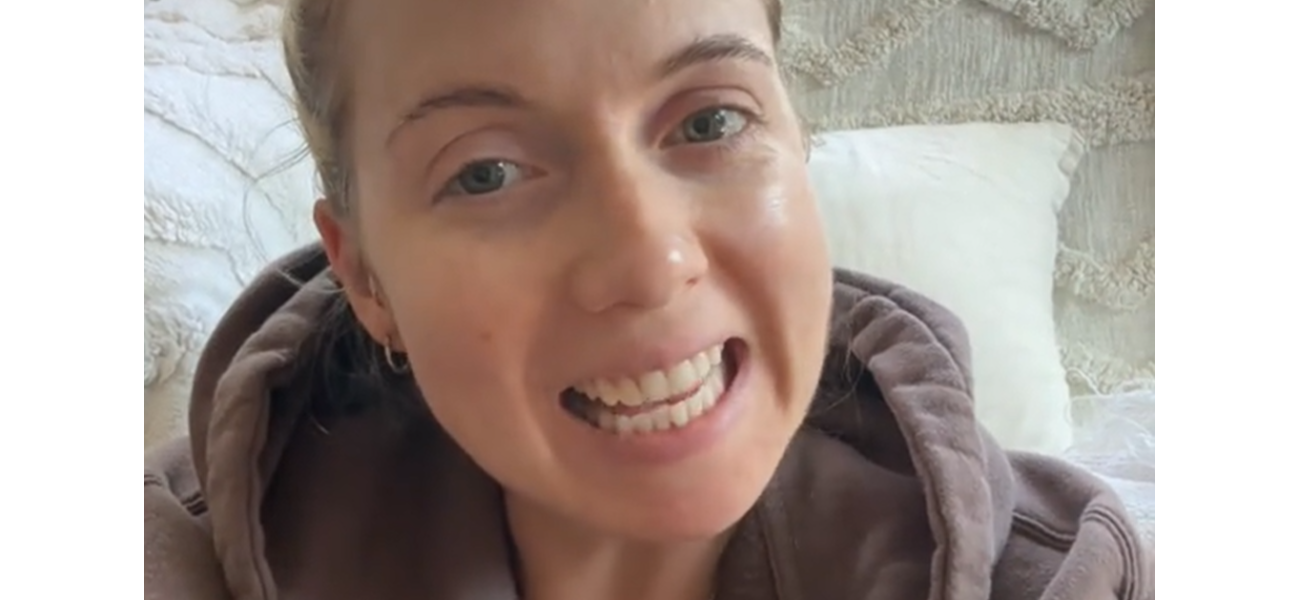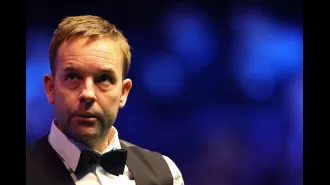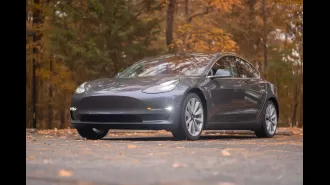Rachael shared a 58-second video and the responses left her terrified.
She was horrified by what she saw, but it only touched the surface.
December 9th 2024.

A 58-second video on TikTok was meant to be a cautionary message for young Australians about the importance of sun safety. However, it turned into a barrage of comments accusing sunscreen of causing skin cancer for Melbourne mom, Rachel Blease. The video, which you can watch above, sparked a conversation about the topic.
The rise of anti-sunscreen rhetoric on social media has been concerning, with a recent study from the International Society of Digital Health in Dermatology revealing that there has been an increase in claims about sunscreen causing skin cancer or containing harmful chemicals. Liz King, Manager of Skin Cancer Prevention at Cancer Council NSW, expressed her worry about this trend, stating, "We have seen a huge spike in misinformation about the causes of skin cancer, in particular the role of sunscreen, which is very disturbing."
This misinformation is especially dangerous for young people, as a recent report from the Australian Communications and Media Authority (ACMA) showed that almost half of Australians between the ages of 18-24 get their news from social media. Experts are concerned that these false claims about sunscreen could influence young Australians to skip using it, ultimately increasing their risk of developing skin cancer.
Blease's personal experience with skin cancer serves as a warning for others. As a teenager, she was not diligent about wearing sunscreen and suffered several bad burns. She never expected that this would lead to a basal cell carcinoma diagnosis at the age of 32. The cancer first appeared as a small pink dot on her forehead, which she ignored for years. It wasn't until a biopsy that she discovered the truth and had to undergo weeks of topical chemotherapy, leaving her with a large wound on her forehead.
In an effort to educate other young Australians, Blease shared her story on TikTok, only to be met with hundreds of comments falsely accusing sunscreen of causing her cancer. She expressed her concern about the dangerous spread of misinformation, saying, "I can't even tell you how many comments I've deleted...It's so dangerous putting that misinformation out there, especially if young, vulnerable children are reading it."
Michelle Wong, an Australian science educator and cosmetic chemist, is one of the experts fighting against sun safety misinformation on social media. Known as @labmuffinbeautyscience online, Wong uses science to debunk myths about sunscreen and skin cancer. She explained that much of this misinformation stems from people misinterpreting studies, particularly in the US where sunscreen regulations and technology are not as advanced as in Australia.
According to Wong, the fear of chemicals is a major factor in the spread of this misinformation. She stated, "A lot of it is just that chemical sunscreens have long names that are hard to pronounce. It's that sort of 'stranger danger urge', that chemical phobia." She also emphasizes the importance of critical thinking when it comes to information found on social media, especially if it's coming from an influencer with no credentials or a personal agenda.
Cancer Council is aware of the challenges posed by social media misinformation and is taking steps to combat it. Last year, they ran a successful social media campaign, in partnership with the Australian Government, titled "End the trend", aimed at changing attitudes towards sun tanning and promoting SunSmart behaviors. This campaign, supported by over 60 online influencers, generated over 122 million impressions and had a positive impact online. Cancer Council plans to continue engaging young Australians through social media to promote sun safety and SunSmart behaviors.
Blease hopes that the positive messaging will overpower the spread of misinformation in time for the next generation of Australians to avoid a diagnosis like hers. She stresses the importance of taking care of your skin and not underestimating the dangers of sun exposure, saying, "It only takes one bad burn for this type of thing to happen." For those in need of support or information about cancer, Cancer Council offers a helpline and online resources.
The rise of anti-sunscreen rhetoric on social media has been concerning, with a recent study from the International Society of Digital Health in Dermatology revealing that there has been an increase in claims about sunscreen causing skin cancer or containing harmful chemicals. Liz King, Manager of Skin Cancer Prevention at Cancer Council NSW, expressed her worry about this trend, stating, "We have seen a huge spike in misinformation about the causes of skin cancer, in particular the role of sunscreen, which is very disturbing."
This misinformation is especially dangerous for young people, as a recent report from the Australian Communications and Media Authority (ACMA) showed that almost half of Australians between the ages of 18-24 get their news from social media. Experts are concerned that these false claims about sunscreen could influence young Australians to skip using it, ultimately increasing their risk of developing skin cancer.
Blease's personal experience with skin cancer serves as a warning for others. As a teenager, she was not diligent about wearing sunscreen and suffered several bad burns. She never expected that this would lead to a basal cell carcinoma diagnosis at the age of 32. The cancer first appeared as a small pink dot on her forehead, which she ignored for years. It wasn't until a biopsy that she discovered the truth and had to undergo weeks of topical chemotherapy, leaving her with a large wound on her forehead.
In an effort to educate other young Australians, Blease shared her story on TikTok, only to be met with hundreds of comments falsely accusing sunscreen of causing her cancer. She expressed her concern about the dangerous spread of misinformation, saying, "I can't even tell you how many comments I've deleted...It's so dangerous putting that misinformation out there, especially if young, vulnerable children are reading it."
Michelle Wong, an Australian science educator and cosmetic chemist, is one of the experts fighting against sun safety misinformation on social media. Known as @labmuffinbeautyscience online, Wong uses science to debunk myths about sunscreen and skin cancer. She explained that much of this misinformation stems from people misinterpreting studies, particularly in the US where sunscreen regulations and technology are not as advanced as in Australia.
According to Wong, the fear of chemicals is a major factor in the spread of this misinformation. She stated, "A lot of it is just that chemical sunscreens have long names that are hard to pronounce. It's that sort of 'stranger danger urge', that chemical phobia." She also emphasizes the importance of critical thinking when it comes to information found on social media, especially if it's coming from an influencer with no credentials or a personal agenda.
Cancer Council is aware of the challenges posed by social media misinformation and is taking steps to combat it. Last year, they ran a successful social media campaign, in partnership with the Australian Government, titled "End the trend", aimed at changing attitudes towards sun tanning and promoting SunSmart behaviors. This campaign, supported by over 60 online influencers, generated over 122 million impressions and had a positive impact online. Cancer Council plans to continue engaging young Australians through social media to promote sun safety and SunSmart behaviors.
Blease hopes that the positive messaging will overpower the spread of misinformation in time for the next generation of Australians to avoid a diagnosis like hers. She stresses the importance of taking care of your skin and not underestimating the dangers of sun exposure, saying, "It only takes one bad burn for this type of thing to happen." For those in need of support or information about cancer, Cancer Council offers a helpline and online resources.
[This article has been trending online recently and has been generated with AI. Your feed is customized.]
[Generative AI is experimental.]
0
0
Submit Comment




